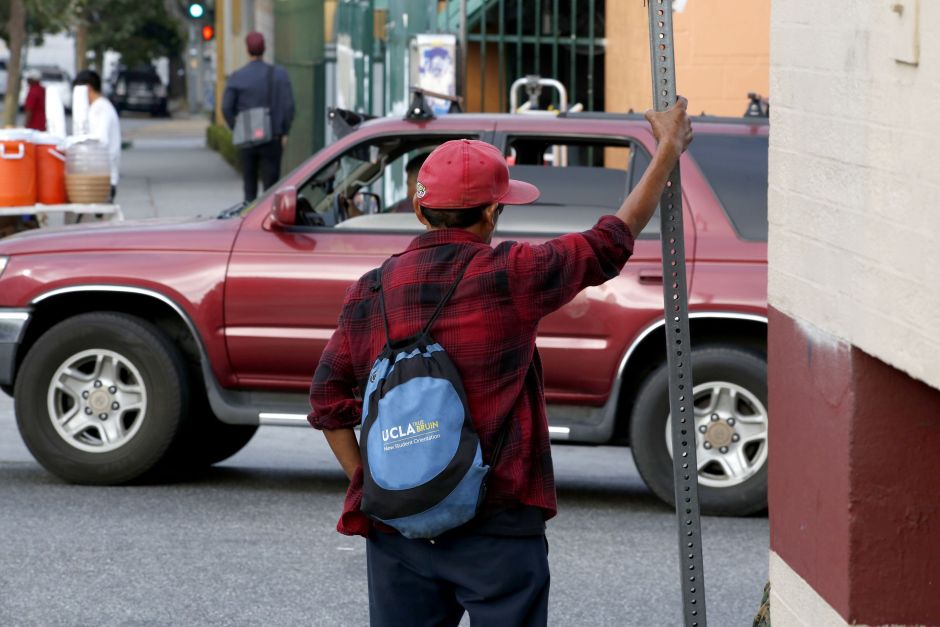Employment for them is scarce, and they are among the populations most exposed to the pandemic
María Zamorano, is a day laborer in Los Angeles, who is about to suffer an anxiety attack due to the fear of acquiring the coronavirus, and because all of her cleaning jobs at home have been canceled.
“I am very recognized because I do a good job, but none of that matters now. I'm out of a job, and I'm asking God to stop this pandemic as soon as possible, "he says.
The coronavirus epidemic forced the temporary closure of all day labor centers in the country, including those in Los Angeles and California.. “We did it to protect workers, the community, and employers. It is not good that 50 day laborers are together in a center waiting for a job, "says Pablo Alvarado, director of the National Day Laborers Network.
But the decision was also made because as a consequence of fear of the coronavirus, in the first two weeks of March, employers stopped showing up at the centers and hiring. "In recent days, it was very lucky that someone came looking for workers," he says.
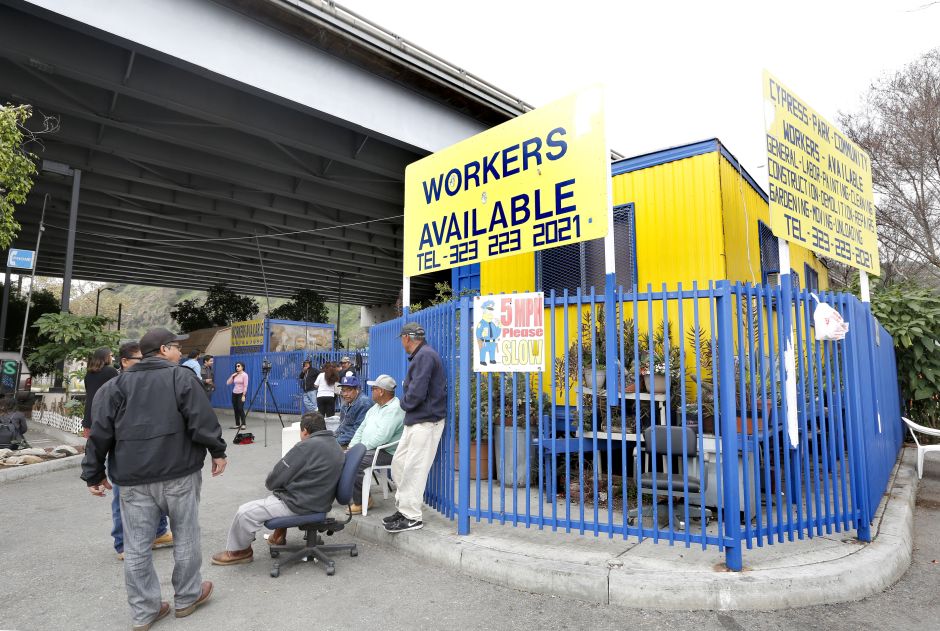
Maria, 50, became clients for home cleaning through the Pasadena Community Job Center.
“From my job as a day laborer she came out to support my three children. I have been his mother and father. Now that they are adults, I work to support myself, pay my rent, my car, and send money to my parents and a daughter who became a widow in Mexico, ”she says.
Laborer for 14 years, he has not worked 13 days. "I have barely gotten construction jobs and deep cleaning in places contaminated with asthma, and who knows without the coronavirus, but we have to do what we can to survive," he says.
Most of the 70 centers for day laborers in the country closed since last week as a preventive measure against coronavirus. In California, as of March 18, the Department of Public Health reported 675 positive cases and 16 deaths.
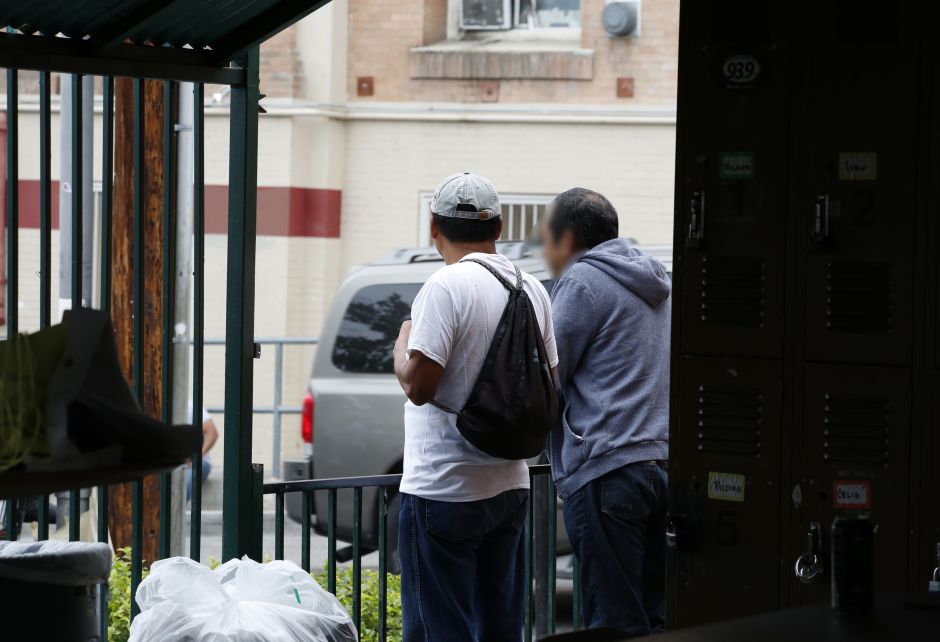
A real crisis
In Los Angeles, there are ten centers for day laborers. In California approximately 20, and throughout the country 70.
“The first place where a crisis is felt among the day laborers. Those who hire the day laborers are people who have a surplus of money. 50% are homeowners; 43%, contractors or subcontractors; and 7%, restaurant owners, ”says Alvarado.
What happens when there is an economic crisis like the one we are experiencing with the coronavirus? He asks.
"Employers no longer have that extra money, they become more protective of their income, and they no longer hire day laborers," he explains.
Beyond the centers for day laborers where there is usually more support for them, those who worry them even more, says Alvarado, are those who start looking for work in the corners.
"We have 700 day laborer corners in 22 states of the country. There is no control on the street. These day laborers have no protection, and it is a very big concern that they take them to do disinfection work in homes and public places. ”
In the Los Angeles metropolitan area, there are 125 corners where day laborers congregate as soon as daylight waits for employers. Figures from the National Day Laborer Network indicate that there are 35,000 day laborers in Los Angeles.
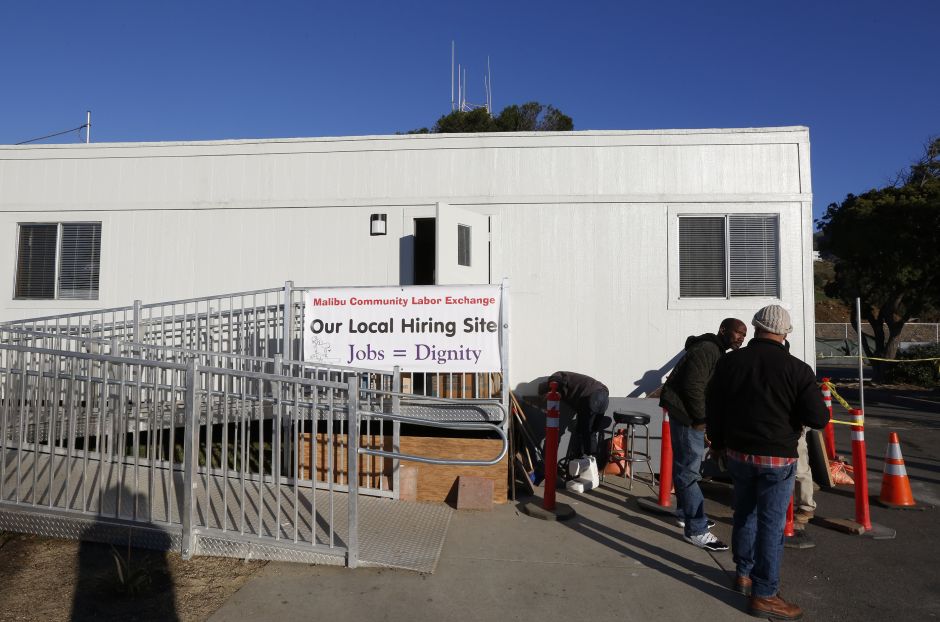
Work and viruses
Alvarado says that the anguish is twofold because they have been left without a job and exposed to the disease.
“If someone gets the virus, they should know that even though they are undocumented, they can ask for help. Call us and we will guide you to get the health services you need, "he says.
Among the measures ordered by California Governor Gavin Newsom to stop the pandemic from advancing, highlights an order for those over 65 to isolate themselves at home for being more vulnerable.
“The need to work is so great that many day laborers began taking years off. They started to tell us, what do you want us to do? If we don't look for chamba, who is going to feed us, ”says Alvarado.
The workers' ages range from 18 to 75 years.
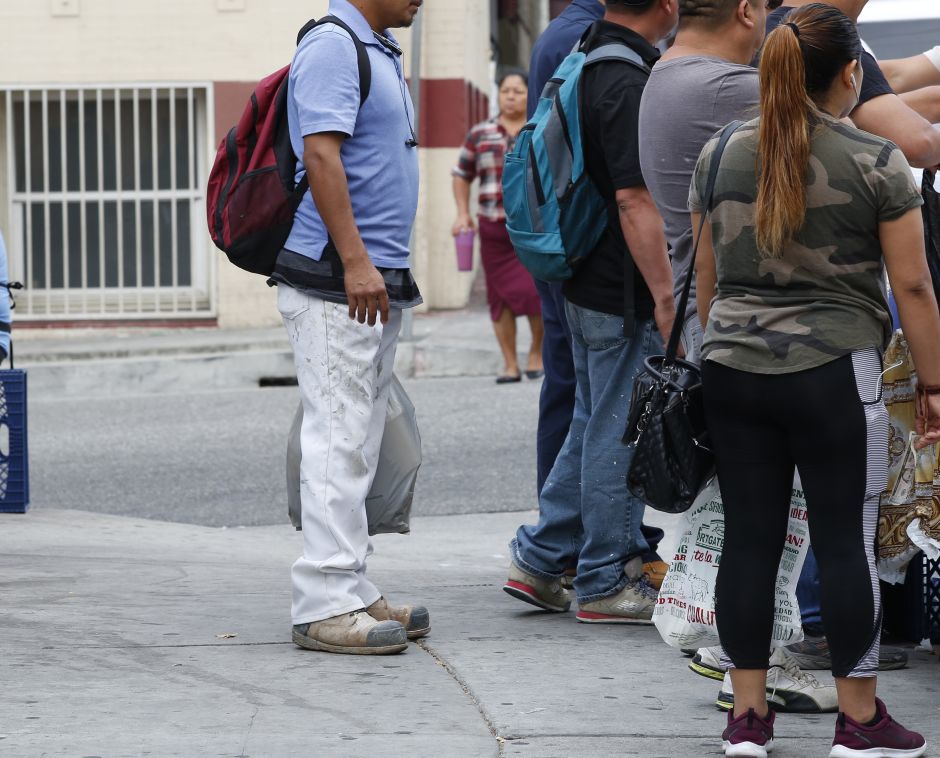
Virtual centers
The last day laborer center to close in Los Angeles County was the Pasadena Job Community Center.
"We have designed a virtual system for employers to apply online or by phone to workers," says Manuel Vicente, head of the Pasadena Day Laborer Center.
"We also established a filter to assure the employer that the day laborer who goes with them to work is healthy," he adds.
They have also provided day laborers with a full set of protection equipment with masks, gloves, glasses and antibacterial gel.
However, this option has not been able to calm the feelings of concern and alarm among the day laborers. "If they can't work, how are they going to pay the rent for their home and face other essential expenses," says Manuel Vicente.
The goal of the National Day Laborers Network is for all day laborer centers to become virtual employment centers for the duration of the coronavirus crisis.
"If they have computers, the Internet and a phone they can do it," says Alvarado
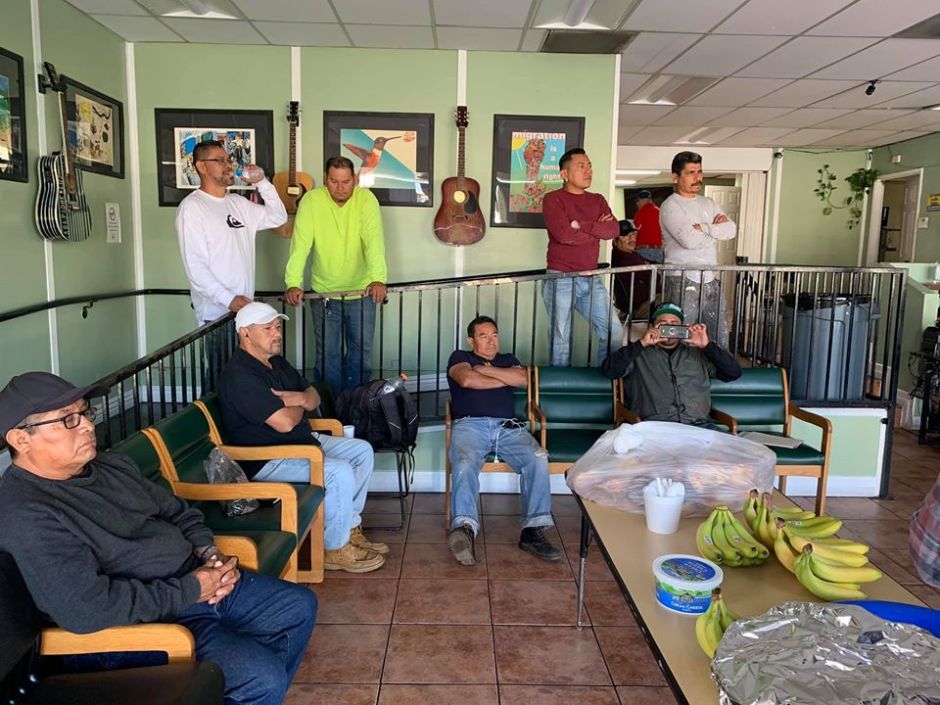
Social protection network
The Pasadena Day Laborer Center will also become a collection center to collect food such as beans, corn, rice, and oil to give to day laborers.
"We are going to create a social protection network by establishing a donation fund that allows us to help day laborers with the rent for their home, services and other expenses because the accounts do not wait, and we do not want them to be condemned to suffer," he says. the leader of the day laborers in the country.
Most day laborers are undocumented immigrants, without access to paid sick days, unable to work from home, have no access to health care, no financial security, and live daily.
If you want to participate with a donation to help thousands of day laborers who are among the population most at risk of contracting the coronavirus, visit the Migrant Worker Safety Network fund.

